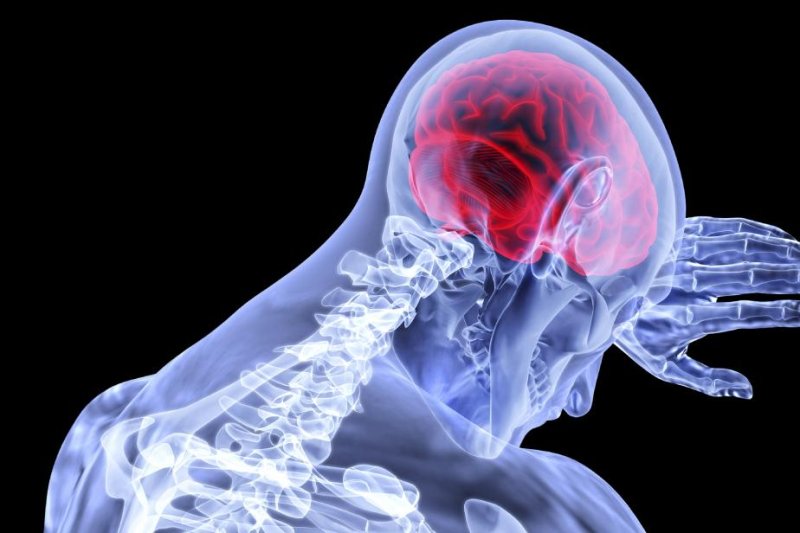Researchers in Britain found an anti-inflammatory drug used to treat rheumatoid arthritis helped reduce inflammation in the brain during early stages of a stroke. Photo by VSRao/
Pixabay
March 26 (UPI) -- An anti-inflammatory drug licensed to treat rheumatoid arthritis helped reduce inflammation in people in the early stages of stroke, according to research in Britain.
Researchers at the University of Manchester and Salford Royal NHS Foundation Trust studied the use of anakinra, marketed as Kineret, by the stroke patients. Their findings were published Thursday in the journal Stroke. The drug is manufactured by Swedish Orphan Biovitrum.
The body uses the protein Interleukin-1 to combat a range of illnesses but scientists at the University of Manchester have previously found that it increases inflammation and brain injury after a stroke. The drug anakinra, also known as IL-1Ra, blocks Interleukin-1 and prevents complications that make a stroke even more dangerous.
In earlier research, the drug reduced inflammation in stroke and sub-arachnoid haemorrhage patients, and the Stroke Association funded the new study to focus on early onset of ischemic strokes.
"Excessive inflammation after a stroke is known to be harmful and predicts a worse outcome in patients," Dr. Craig Smith, a researcher at the University of Manchester, said in a press release. "We have shown that Kineret injections, started within six hours of stroke onset significantly reduces levels of inflammation in patients."
The 80 participants in the study, who had a mean age of 72, were given six doses of the drug or a placebo over three days in a Phase 2 trial from 2013 to 2016. The first dose was given within six hours after the first stroke symptoms.
The researchers say further research is needed to see whether Kineret is an effective treatment for ischemic stroke and whether it can be given with current treatments that include clot-busting drugs.
"This study builds on evidence that IL-1Ra helps to reduce inflammation and brain damage in a wide range of stroke patients soon after a stroke," said Hilary Reynolds, executive director of strategy and research at the Stroke Association. "The drug can be given quickly, via injection or via a drip."
"The research has not yet proven that this drug can reduce patient disability after stroke," Reynolds said. "However, if further trials are successful, we hope it could vastly improve outcomes and quality of life for people who have had a stroke."
The quick administration is an asset, she said, with the research suggesting the drug can be delivered in an ambulance on the way to the hospital -- potentially saving millions of brain cells, two million of which die every minute during a stroke, and increasing chances for recovery.
The researchers are planning a national trial of Kineret users with 1,000 patients to start later this year, and another trial of 80 patients with stroke-caused bleeding in the brain, known as intracerebral hemorrhage, will begin this year. The trial will test if markers of inflammation are reduced by Kineret and test safety in the hemorrhage.















